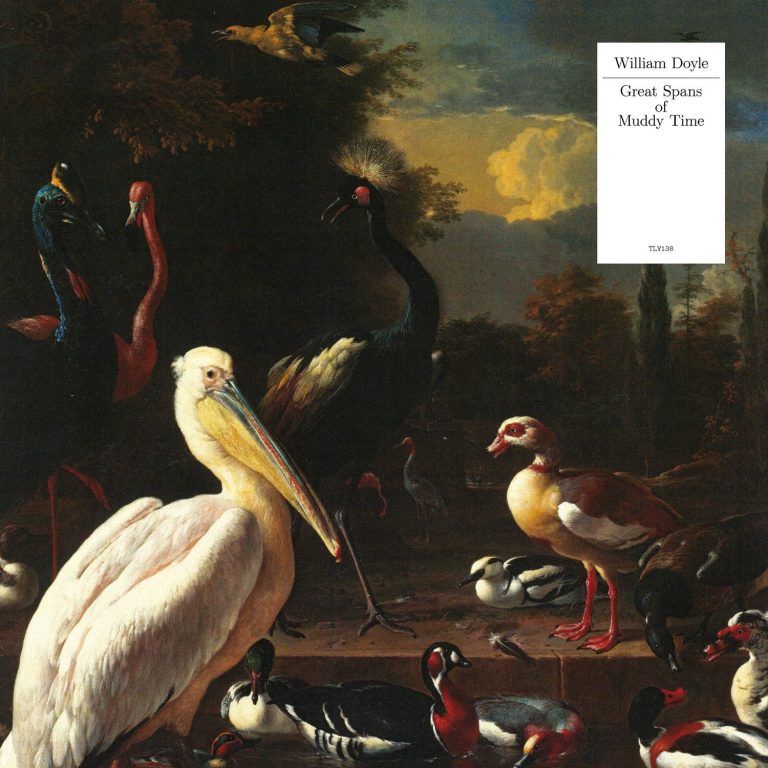William Doyle crafts music of distance – of loss, of seeking, of things you can never quite know, but nonetheless feel a need to reach. When his latest album, Great Spans of Muddy Time, opens up with “I Need to Keep You in My Life”, it’s something of a mission statement. He simply can’t accept that something, or someone, is leaving him.
Can any of us, really? We cling to memory, we cling to items, possessions, we cling to whatever we can. Indeed, this is an album of refusing to accept loss in more ways than you’d readily imagine: due to a “catastrophic” harddrive failure, Doyle nearly lost the entirety of his recordings for Muddy Time. Having spent a taxing, obsessive four years on his prior album, 2019’s Your Wilderness Revisited, he was left with simple remnants for its followup. With just some recordings on cassette tape, he was no longer able to finetune them and comb over them to his (perhaps unhealthy) heart’s content.
Rather than being crushed, he found it freeing. Removed from his unending tinkering, he could simply take the pieces of music and focus on his craft, caring for each individual song, rather than some finessed, particular overall vision. The results are paradoxical. On one hand, Muddy Time is clearly a love letter to Doyle’s beloved predecessors, most readily perhaps Robert Wyatt’s Rock Bottom as well as Eno’s earlier vocal flirtations. But it’s also perhaps the most complete vision of Doyle’s works yet.
Great Spans of Muddy Time is named for Monty Don, of BBC’s Gardener’s World fame, a quote the man used to refer to periods of depression, but is just as applicable to the odd, seemingly endless space of time that COVID has come to occupy. Don’s regular presence on the TV allowed Doyle to reconnect with nature, somewhat escaping the inevitable, encroaching depression of our current era. This also leads to a duality of nature within Muddy Time. On the one hand, it’s music of escapism, with glittering and clattering soundscapes that take us away from our present moment. On the other, Doyle’s words are nearly entirely obsessed with his concerns and fears. “Who Cares” finds him wailing over distorted strings, “Who cares what they say?,” revealing quite readily that, of course, what he fears most of all is what ‘they’ might think. We’re all stranded, alone, and yet the thoughts of our peers have never mattered to us more.
This is music of depression without ever giving into it; music of depression refusing to be depressive. Instead, it has its sights firmly marked on emerging from it, towards an inevitable, if perhaps grimly distant, return to normalcy and life anew. Great Spans of Muddy Time is music made for living, released at a time when we’re doing far too little of it. It’s invaluable.

